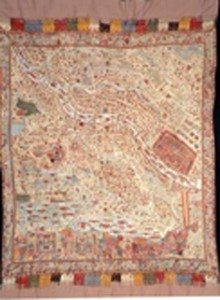15,202 people reached on Lassi with Lavina FB page – 1605 engagements
Avneet Thapar Hall, Shagun Mehandru, Indu Dey and 69 others like it on FB
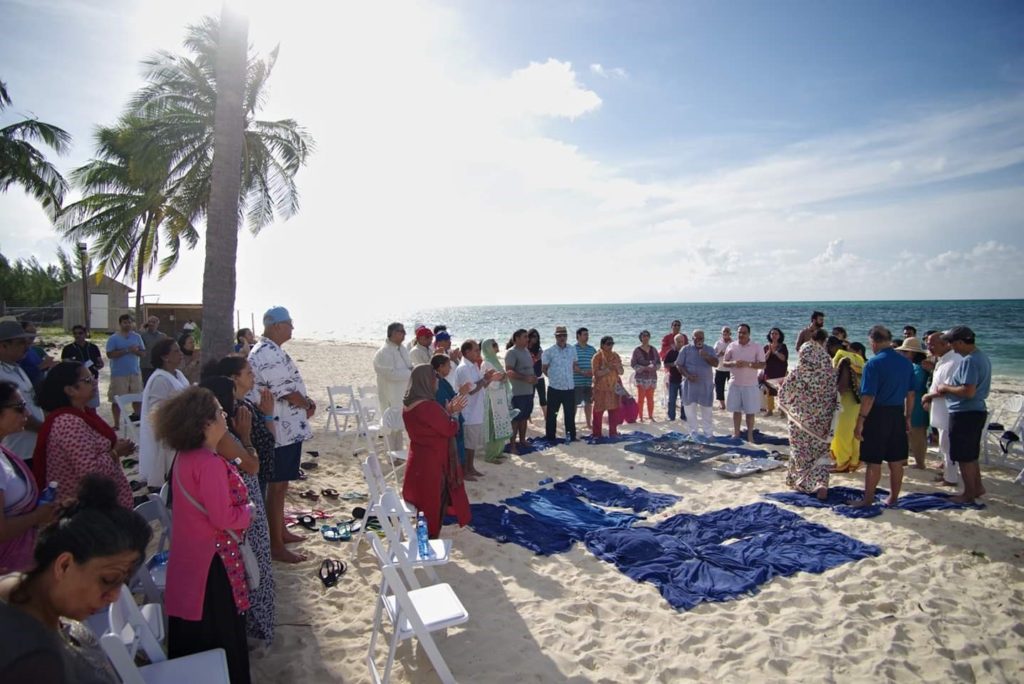
Kashmir: Paradise Lost and Regained
Kashmiri Pandits Rejoice in the ‘Rebirth’ of Kashmir with revocation of Article 370
[dropcap]W[/dropcap]ith one stroke of the pen, India, by presidential decree, has revoked Article 370 of the Indian Constitution. “It is the rebirth of Kashmir”, says Dr. Nirmal K. Mattoo, a noted nephrologist in New York and a leader in the Kashmiri Pandit community which for the last 30 years had lost all rights in their homeland and had undergone a horrific ethnic cleansing, becoming the disappeared people in the Valley.
“I was just three years old when we left but my upbringing was predominantly Kashmiri,” recalls Mattoo who is also the president of the Mattoo Center for India Studies at SUNY Stonybrook. “We spent three months in Srinagar every year in the family house with our large extended family of many uncles, aunts, cousins. There were lots of festivals, marriages and celebrations.”
Over the years the Kashmiri Pandits had to flee the valley and that beautiful time has receded into memory. Mattoo has never gone back into that changed, strife-torn Kashmir. “It was a very traumatic time,” he says. “Even till this day that never goes away, the feeling that you get when you cannot visit your home where you were born and raised is horrible – I think of it, and I feel very upset.”
In the US there are close to 1750 Kashmiri pandits and for them the turn of events in Kashmir is nothing short of epic. “’Ecstatic’ would be an understatement’ said Rakesh Kaul, co-founder of the Global Kashmir Diaspora Group, when asked for the reaction of the community. “It was long overdue. It is the day of liberation where all J & K citizens get their birthright under the Indian constitution.”
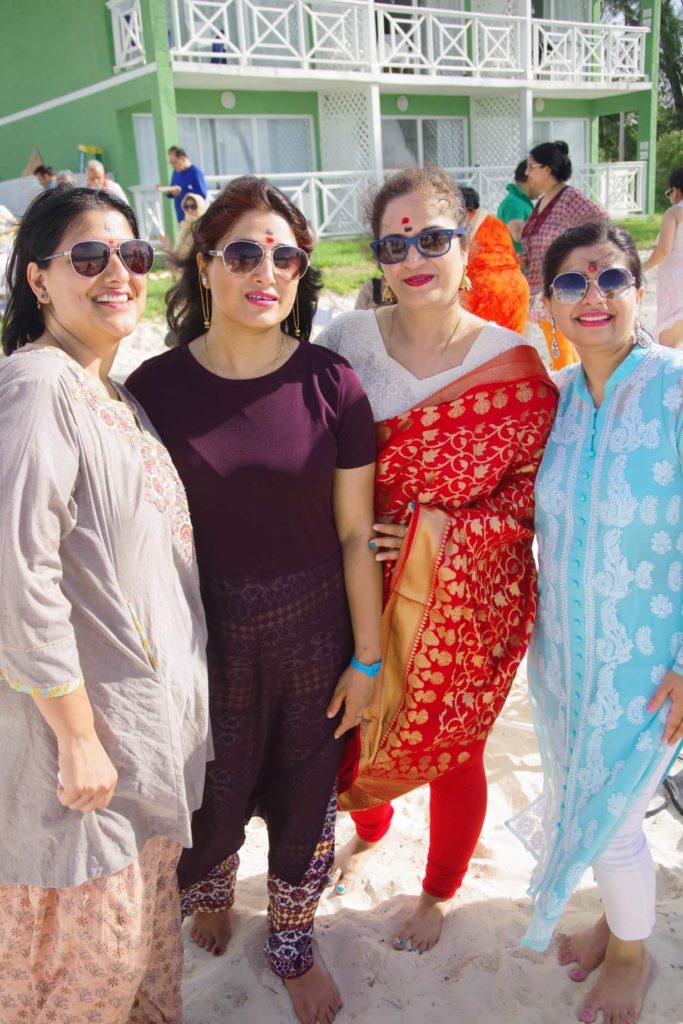
[dropcap]W[/dropcap]hile there have been mixed opinions in different Indian communities both at home and abroad, Samir Kalra, managing director of the Hindu American Foundation (HAF), an advocacy group in Washington DC, says: “We believe that the abrogation of Articles 370 and 35A is an important step in bringing peace and progress to Kashmir and will better integrate the residents of Jammu, Kashmir, and Ladakh into the rest of India. Accordingly, one set of equal laws will now be applied to the new Union Territories of Jammu & Kashmir, and Ladakh, affording residents from all religious and socio-economic backgrounds, as well as women, with more rights and educational and economic opportunities”
As he points out, Articles 370 and 35A were only intended to be temporary and transient provisions, and were removed consistent with the Indian Constitution. Clause 1 of Article 370 itself allows for these provisions to be removed through Presidential order, as was recently done. He says these actions will also help create conditions for the full rehabilitation and resettlement in the Kashmir Valley of the Kashmiri Pandits who were ethnically cleansed in 1989-1990.
[dropcap]V[/dropcap]ijay K. Sazawal is the international coordinator and co-founder of the Indo-American Kashmir Forum (IAKF). A policy analyst and commentator, he describes the horrific displacement of over 350,000 Pandits from their ancestral lands, representing 95 percent of their total population in the valley in 1990.
He says; “For the last 30 years, it’s been painful. All minorities were second-class citizens. Now we will have the same rights as all citizens of India. I would say it’s like the end of slavery for non-Muslims in the state of Jammu and Kashmir.”
He observes that the move by the Indian Government will also improve the security situation with respect to cross border terrorism and bring stability in Jammu and Kashmir.
I asked several Kashmiri Pandits who have lived so far from home for so long about the idea of Kashmir they have latched on to during the tough times. Says Rakesh Kaul, “My memory is long term – a land that was the center of learning. It shaped humanity during the first millennium more than any other spot on earth. A land described as ‘the cradle of civilization’ by European scholars.”
As he points out, “Kashmir was always an integral part of India. What has changed is the internal governance structure. Two family rule, an oligarchic domination will cease. It has exploited the common Kashmiri through corruption and lawlessness. It has ruined the brand name of Kashmir and made it synonymous with fanatical religious extremism.”
An Interview with Rakesh Kaul, co-founder of the Global Kashmir Diaspora Group
[dropcap]S[/dropcap]hakun Malik is the president of Kashmiri Overseas Association (KOA), a nonprofit organization registered in Maryland. She says, “Our goals are to preserve and promote Kashmiri Pandit culture and as such we stay away from political platforms. This development however may have a big impact on our community exodus status and the fact we were pushed out for ethnic cleansing.”
Holding on to their cultural roots, the Kashmiri Pandits have recreated Kashmir in exile. Malik quotes the Kashmiri poetess Lal Ded, “Zuv chum braman gara gatshaha ( our hearts desire to go back home) . We hope that our displaced people will find path to their homes soon. The KOA prays for peace in our homeland. We hope that reservations for the minority will bring education, employment and healthcare to the needy. Enough is enough – we have suffered. Kashmir is for Kashmiris. We are the people!”
[dropcap]R[/dropcap]ajeev Kaul of New York is a CPA, real estate investor and a board member of IAAC. He says, “I am personally thrilled about it. A historical mistake, which should have been temporary in nature, has been corrected after 70 years.” Asked if it won’t make the situation in Kashmir more tense, he says, “The status quo in Kashmir created conditions for violent extremism – and was unsustainable. In the short term it may lead to more violence and unstable environment but in the long run, union between J &K and India will lead to peace and prosperity in the region.
Hindu Kashmiris have been losing their status over the last 70 years and after the “Desh Nikala” we had lost all effective control over our heritage, culture and home. I am not sure if we can recover what was lost – but maybe over time we can reclaim our ‘Sanskriti.’”
His children Saagar and Jherna were born in the US and like many second generation Kashmiri pundits, have never been to Kashmir. Now they hope to visit their homeland. Rajeev still cherishes the photo of his ancestral Kashmiri house – and for many years that is all he has had. Now there may be a chance to revisit.
He cherishes a childhood memory of the Kashmir Valley. “As a child we had gone to ‘Kheer Bhavani’ Temple in Tulmul , I was playing in the complex very close to the exit,” he recalls. “A Muslim farmer called me outside the gate and handed over a bucket of milk and asked me to go inside the temple and pour that milk in the pond as offering to the Goddess. This was in early 70s – Kashmir was a “paradise” then and I would like to remember it that way and maybe in my lifetime it will return.”
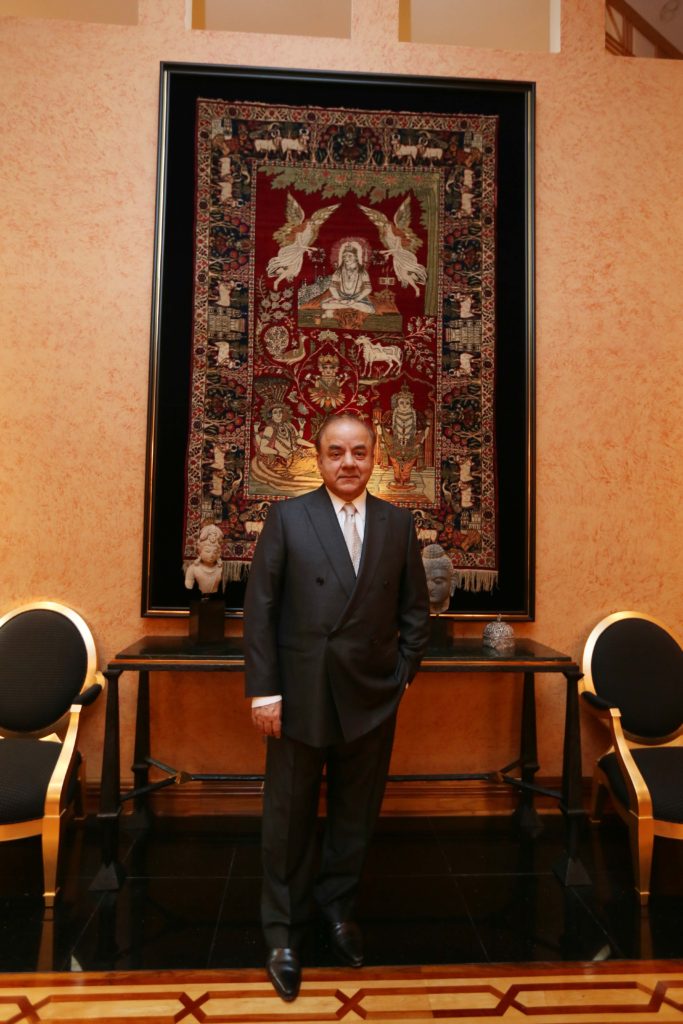
[dropcap]F[/dropcap]or Nirmal Mattoo, it is a time of great joy: “The Kashmiri Pandit community is at present intensely happy, excited and to some extent, bewildered. Thanks to Mr. Modi and his government Kashmiris and India now feel liberated. We can now realize an India where everyone has equal rights, equal opportunities to excel and can live a life without fear.”
He adds, “Kashmiri Muslims have been hoodwinked by their religious and political leaders. They have to understand that the world is becoming one large community and they have to learn to live in a pluralistic tolerant society.”
Indeed, in his home, Mattoo has a cherished antique tapestry rug woven in Kashmir, displayed on the wall. The Hindu Gods Shiva, Brahma and Vishnu are there with two Christian angels hovering above them – and on one side there is a mosque with minarets. All the different religions are portrayed side by side. It is this vision of a united, enriched Kashmir that Dr. Nirmal Mattoo wants to emphasize and celebrate.
(This article was first published in my weekly column India in America in CNBCTV18.com)
Related articles:
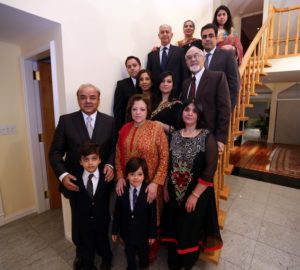
Meet the Renaissance Man: Dr. Nirmal Mattoo
